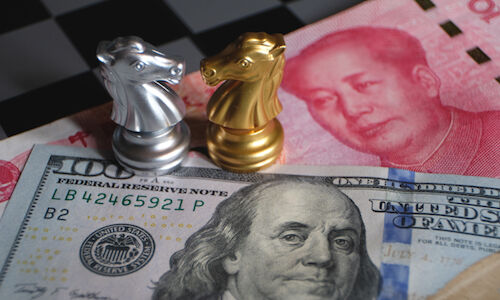Banks Readying for U.S.-China National Security Law Crossfire
Hong Kong's national security law and related U.S. sanctions have led Chinese and foreign banks to build contingency plans and review operations to address risks in the new regime.
Washington is on the cusp of allowing sanctions against individuals or entities implementing the national security law in Hong Kong alongside banks that conduct significant transactions with them. Beijing had already anticipated such risks evidenced by the newly enacted national security law which forbids sanctions, blockades or hostile activities against Hong Kong and China under «Article 29».
Banks have expectedly been caught in the middle of the U.S.-China crossfire. But they have face an impossible balancing act: how to comply with both U.S. requests related to Chinese sanctions while complying with the national security law in Hong Kong?
Accessory to a Crime?
This subset of prohibited acts in «Article 29» has been a major driver leading global banks to review and address risk associated with implementing sanctions mandated by the U.S. government.
Though the security law incriminates even violators abroad, banks are assessing the option of having offshore rather than local entities implement sanctions to avoid exposing staff physically located in Hong Kong, according to a «Bloomberg» report.
And in the event that U.S. officials request for client information, banks could risk violating another rule within Article 29 that protects «State secrets or intelligence concerning national security». In response, the report said that banks were actively reviewing their own clients to identify those that could face sanctions and to ensure agreements contain clauses that allow swift account closures without penalty.
U.S. Dollar Drought?
Chinese banks were also reviewing internal operations and, in some cases, planning for the worst-case scenario possible from the new regime.
Three of China’s «big four» state-owned giants Bank of China, Industrial and Commercial Bank of China and Agriculture Bank of China were all named for readying contingency plans, according to a «Reuters» report citing unnamed sources, adding that all three initiated preparation on their own.
The former two were preparing for the worst-case scenario – the possibility of losing access to U.S. dollars or U.S. dollar settlements. The latter lender is preparing for the less extreme scenario of dealing with clients being blacklisted by the U.S. government and their risk of sudden liquidity loss.
History Review
Bank of China, in particular, reportedly took nuanced approaches to assess risk. In addition to considering branch bank runs in Hong Kong for fear of U.S. dollar shortage, Bank of China is also reviewing the experience of banks in Iran which have faced American sanctions dating back to the 1979 Islamic Revolution.
«We are hoping for the best, but preparing for the worst,» one of the sources added. «You never know how things will turn out.»
The three aforementioned state-owned banks have a combined $1 trillion in U.S. dollar liabilities, according to annual reports. Another three state-run leasing firms – heavily dependent on U.S. dollar funding for aircraft, machinery and facility purchases – were also making contingency plans, the report added.
Steep Costs
Corporate entities could face the risk of fines or the loss of their banking licenses if they are too poorly positioned or operationally respond ineffectively. And individuals could face up to life imprisonment for violating the national security law regardless of their nationality or residency.
The «Hong Kong Autonomy Act» recently passed with veto-proof support from the Senate and the House while now awaiting President Donald Trump's approval. Following enactment, the State Department has 90 days to submit a report on individuals or companies that merit sanctions with a subsequent report on financial institutions submitted within 60 days after that. The U.S. president will then have a one-year period to impose the suggested sanctions.






















